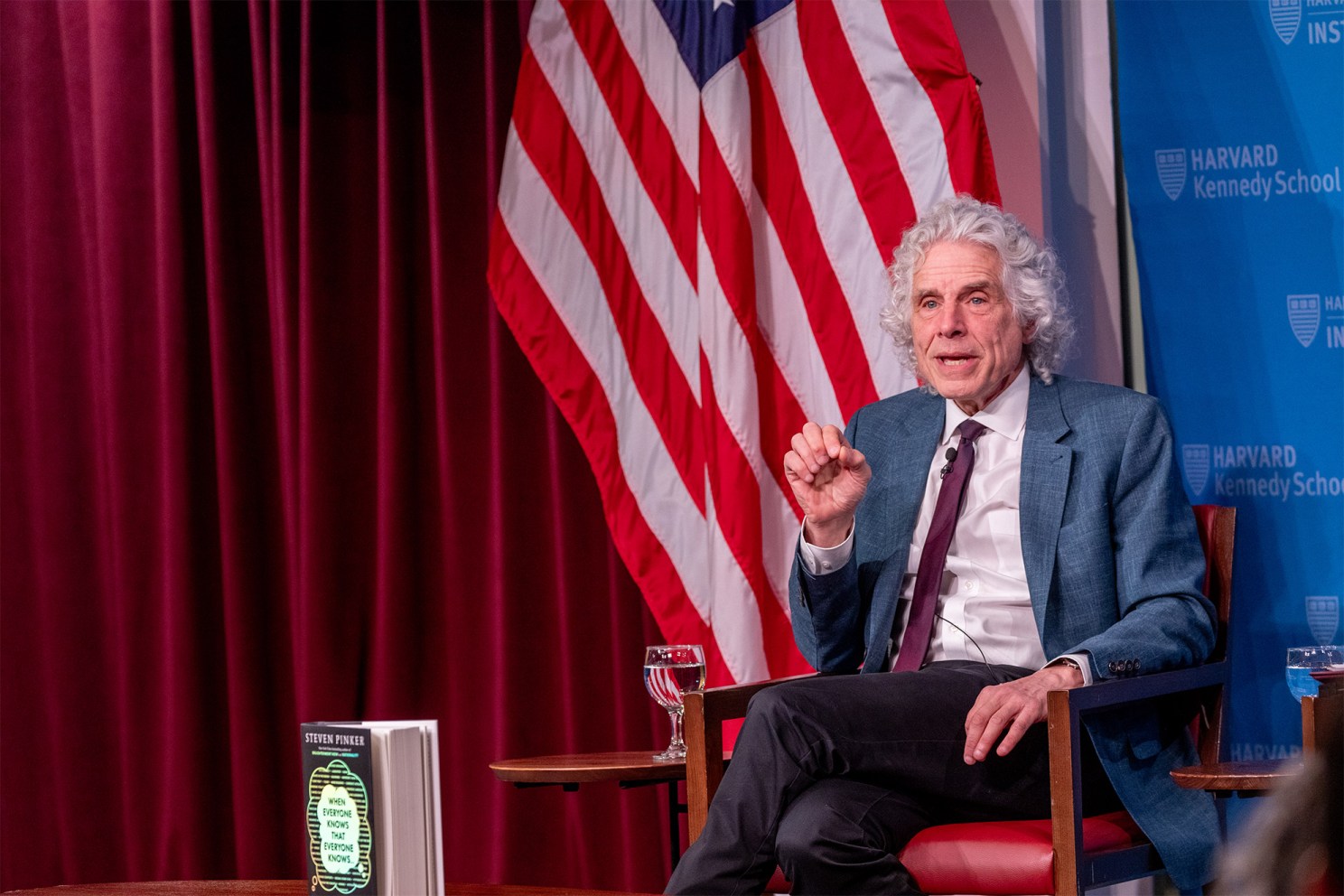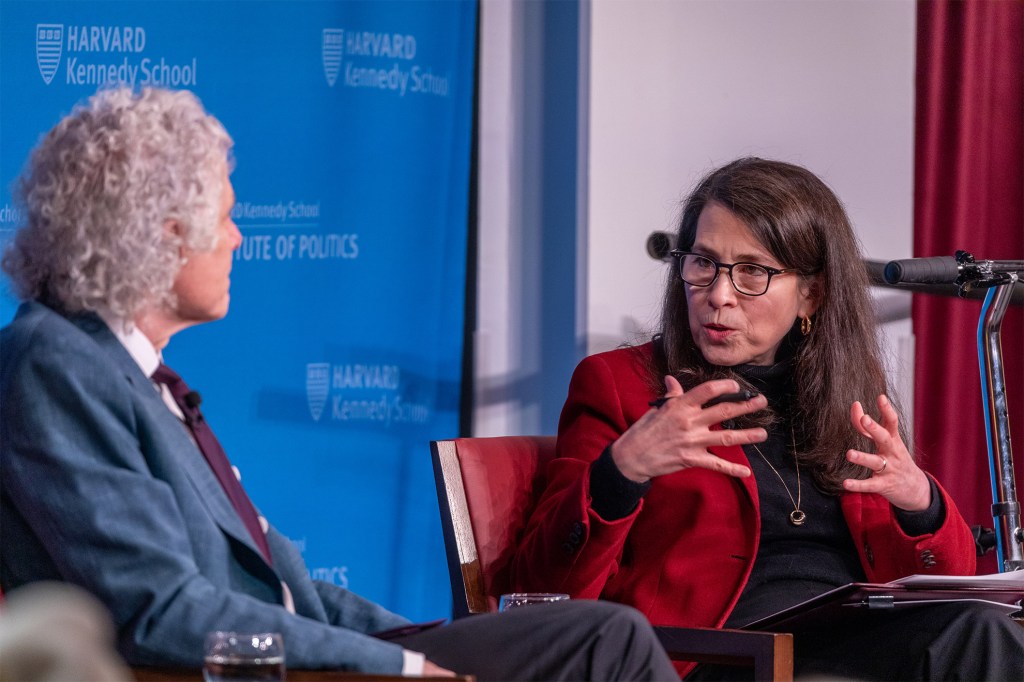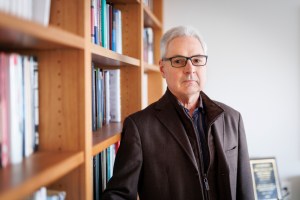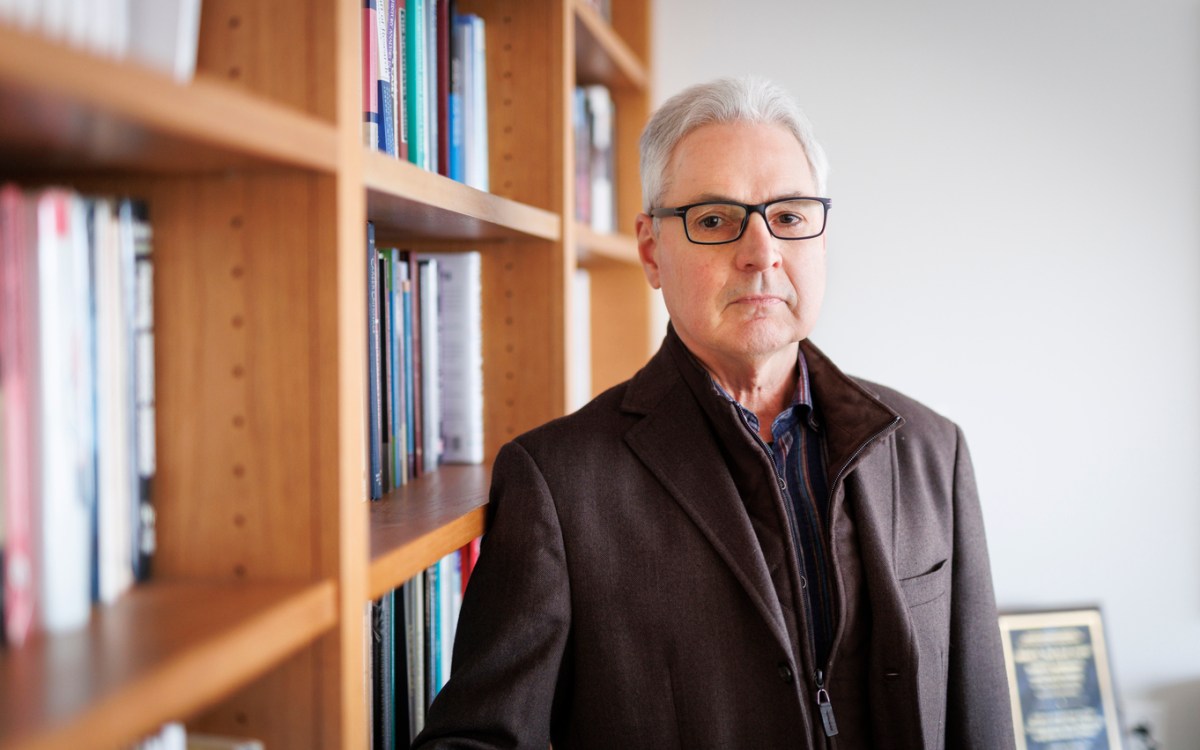Steven Pinker wants to hear your ideas – even the bad ones

Steven Pinker.
Photos by Michael DeStefano
Psychologist takes issue with cancel culture in ‘common knowledge’ conversation at the IOP
Steven Pinker, Johnstone Family Professor of Psychology, explained how “common knowledge” operates on campuses, in politics, and across the wider culture in a conversation with the Kennedy School’s Jennifer Lerner Wednesday at the IOP Forum.
“I know something. You know it. I know that you know it. You know that I know it. I know that you know that I know that you know it, and so on ad infinitum,” said Pinker, defining the term at the center of his latest book, “When Everyone Knows That Everyone Knows…: Common Knowledge and the Mysteries of Money, Power, and Everyday Life.”
Common knowledge undergirds all sorts of human affairs and social conventions including language and currency, helping shape everything from stock market booms and busts to the formation of political movements, he said.
“Why does a word mean what it means? It’s not because any panel of dictionary editors legislated what the correct meaning of a word is,” Pinker said. “A word means what it means because everyone knows that everyone knows that everyone knows that that’s what it means.”
Lerner and Pinker spoke about how norms, which are a kind of common knowledge, affect higher education. Pinker, who serves on the Council for Academic Freedom, an association of University faculty that promotes free inquiry, intellectual diversity, and civil discourse on campus, said he’s fascinated by the psychology behind “cancel culture,” especially at colleges.
“Contrary to what ought to be the ethos of academia, namely that only by expressing an idea can we find out whether it’s any good, why is there an urge that certain ideas not be expressed at all?” Pinker wondered.

That state of affairs is not in anyone’s interest, especially at colleges and universities, where students and faculty ought to be free to evaluate hypotheses without judgment or intimidation, he argued.
“In academia, people often treat opinions as signs of internal moral worth,” he said. “You’re a good person or a bad person according to what you believe.”
Asked whether highly objectionable speech in the classroom deserves to be restricted, Pinker said no, the content of someone’s ideas, no matter how odious, shouldn’t lead them to be punished.
“Yeah, it hurts when someone criticizes one of your ideas,” but “too bad,” he said. “If you’re part of this community, you’ve got to sign on to the agreement that your ideas are fair game and that you don’t have any proprietary interest in them not being criticized.”
Today’s media fragmentation and political news silos — along with the emergence of social media figures who amplify conspiracies in order to make money — have made it more difficult for society to identify commonly held objective truths, Pinker noted.
It’s not that common knowledge is in decline, he said. Human beings have mostly fallen short of consensus on life’s biggest questions. What’s changed is that academics, journalists, and others in liberal democracies have started to believe that objective answers to these questions exist and that tools like science and scholarship can lead us to the truth.
“These are deeply weird beliefs in the context of human history,” where it hasn’t been possible until recently to find ‘true’ answers to these questions, he said.
“And so what we’re seeing, I think, is a regression to the way that people always have dealt with big questions that are outside the realm of immediate experience. Namely, why would anyone think there’s a true or false answer to begin with?
“I think what we need to do is not ask the question, why are people no longer believing in the truth, but what is it that ever gets people to sign on to the idea that there is a truth these big questions in the first place?”




